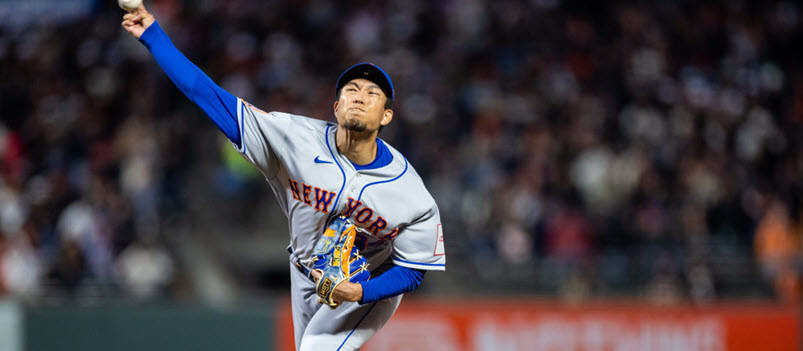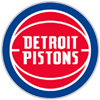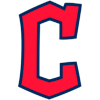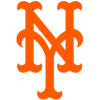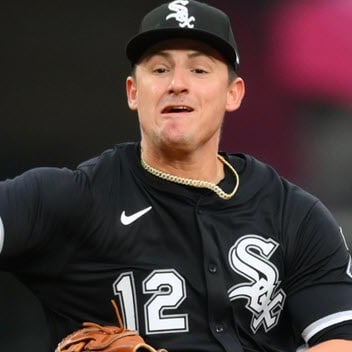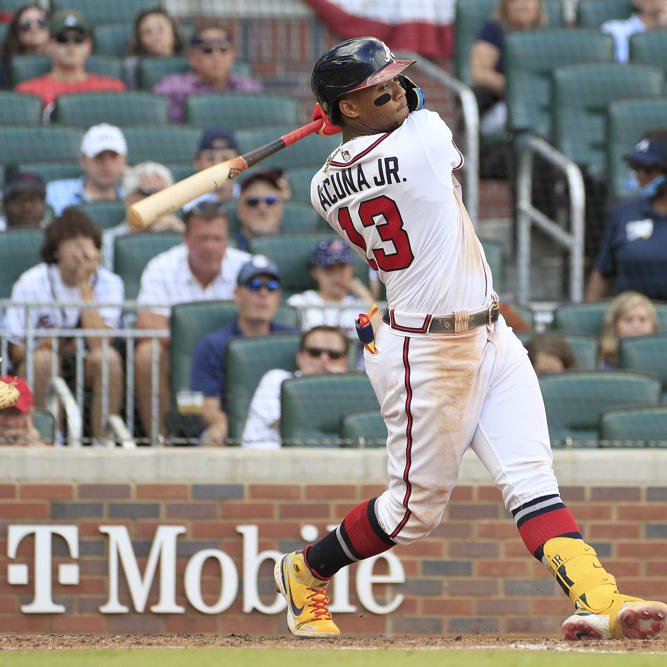Okay, here we go, such as it is. I have been playing fantasy baseball since 1989, and while I have certainly had pitcher disappointments, I don't recall ever having an entire pitching staff disappointment this late in the season. Much of it can be attributed injuries, but even the healthy guys have struggled. Gone are Noah Syndergaard (was SP6), Cal Quantrill (was SP7) and Carl Edwards (RP4). I will add that I typically focus very heavily on a few arms, so many of these guys pitch on several of my teams.
A little background:
This league has been in existence for a very long time. This is my 33rd season, and most of the league's owners have been members for 20-plus years. It started in my hometown, but owners have gradually dispersed all over North America, and we usually all come back for draft day. However, I have dealt with some mobility issues (getting old sucks), and travel has become a challenge for some of the far-flung owners, so we hold the draft online. These guys are savvy, experienced, and they are pretty familiar with the tendencies of the other owners. It's a challenging group, but that makes it fun!
With 15 teams, it is a mixed league keeper with deep rosters (33 players per team with no minor league or disabled list slots). Standard scoring categories, five hitting and five pitching, with a lineup consisting of 12 hitters and nine pitchers (with a minimum of five qualified starting pitchers
Okay, here we go, such as it is. I have been playing fantasy baseball since 1989, and while I have certainly had pitcher disappointments, I don't recall ever having an entire pitching staff disappointment this late in the season. Much of it can be attributed injuries, but even the healthy guys have struggled. Gone are Noah Syndergaard (was SP6), Cal Quantrill (was SP7) and Carl Edwards (RP4). I will add that I typically focus very heavily on a few arms, so many of these guys pitch on several of my teams.
A little background:
This league has been in existence for a very long time. This is my 33rd season, and most of the league's owners have been members for 20-plus years. It started in my hometown, but owners have gradually dispersed all over North America, and we usually all come back for draft day. However, I have dealt with some mobility issues (getting old sucks), and travel has become a challenge for some of the far-flung owners, so we hold the draft online. These guys are savvy, experienced, and they are pretty familiar with the tendencies of the other owners. It's a challenging group, but that makes it fun!
With 15 teams, it is a mixed league keeper with deep rosters (33 players per team with no minor league or disabled list slots). Standard scoring categories, five hitting and five pitching, with a lineup consisting of 12 hitters and nine pitchers (with a minimum of five qualified starting pitchers and two qualified relief pitchers). One thing that makes roster management more challenging – picking up a free agent requires a "move" usually from a player being sent down or put on the injured list. You can then release that player and pick up someone on the waiver wire (order is determined by reverse order of the current standings). Since you probably won't want to cut a key player who goes on the IL for a short time, you really need versatility and some productivity on your bench.
So, let's look at my pitching staff, and discuss my thoughts on where we are:
- SP1 Kodai Senga – (was SP5) He's not a fantasy No. 1, or he shouldn't be, at least not yet. In many of his outings, Senga has been all over the place, especially in the early innings. A couple hits sandwiched in with a pair of walks as his pitch count soars, but he manages to escape allowing just a couple runs. He often looks like the pitcher he was in Japan – good command, missing bats and a huge assortment of pitches including that jaw-dropping, tumbling, forkball. It's a pitch you (and MLB hitters) don't see often these days. The command issues drive up his pitch counts leading to an inflated WHIP and shorter outings, but it's easy to see a lot of potential. Hopefully he'll climb to an ace status.
- SP2 Yusei Kikuchi (was SP7) – He qualifies as both a starter and reliever, which is quite a benefit. I drafted him as a versatile FLEX pitcher I could potentially plug in if an injury popped up. He has started exclusively this season, and thankfully he has pitched fairly well (7-2, 1.23 WHIP, 3.75 ERA and 85 strikeouts) while being in my injury-decimated lineup every week. Given his expected role and his actual contribution, he has been a useful arm. He has, at times, followed he trend of early troubles, but hopefully he can keep producing.
- SP3 Bryan Woo – (new) Woo kind of came out of nowhere, mostly because he pitched very few minor league innings (just 100 total, with 44 of those coming in Double-A). That said, the first couple times I saw him, I was impressed, so with one of my many injured rotation slots to fill, I took a shot. He's just 23 but he pitches older. I think one of the things that has really helped is the addition of a two-seam fastball. Hitters seem to have trouble picking him up. The risk exists that hitters will develop a book on him, but I think he'll be able to adjust. The Mariners are unlikely to push his pitch counts/innings, but if he can be a bit more judicious and pitch more to contact when needed, he's capable of getting deep enough to at least qualify for wins (albeit his mates don't provide many runs).
- SP4 MacKenzie Gore – (was SP7) Here's yet another Kid's List alumnus. I mean it stands to reason. I first saw Gore when he was in high school, and I immediately decided he was destined to pitch for me. I have had to be patient. He was selected in the first round in the 2017 draft out of high school, and he was making good progress before the injuries set in. His progress was slowed, but I still saw flashes of great potential. His WHIP is high (1.41), but even though he frequently suffers from high pitch counts, he still leads my staff with 104 strikeouts. He pitches for a bad team, limiting his wins, but I watch him as often as I can. Hey, I'm dreaming of what he might be as he matures.
- SP5 Jack Flaherty (was SP5) – He has pitched regularly, making 15 starts even though he was recently scratched with "hip discomfort." Is this something that has contributed to his relatively ugly performance (4-5, 1.60 WHIP, 4.95 ERA)? Actually, the entire Cardinals pitching staff has really under-performed. You know, I guess I expected some potential struggles with the retirement of Yadier Molina, but could that one thing be this catastrophic? On Opening Day I had Flaherty penciled in as a potential leader of my staff. Now, he pitches regularly for me primarily because I have no healthy options. Only one way to go. Up.
- SP6 Kenta Maeda – (new) I have been a big fan of Maeda and his assortment of off-speed stuff for years. He was in form until Tommy John surgery took him out in 2021 and cost him 2022. He struggled to shake off the rust early this season, and then lost eight more weeks with a triceps strain. His signature pitch is a splitter – devastating when it's on, but hittable when it floats so its generally pretty easy to see what you'll get early in a game. He's not a power pitcher, only averaging about 90 mph on his fastball so he focuses on fooling hitters. He was a little erratic, and some shabby fielding hurt his cause in his last start against the hard-hitting Braves, but there were plenty of positive signs, too.
- SP7 Braxton Garrett (new) – My most recent addition, I was looking for quality innings with a low ERA, a decent strikeout rate and a chance for the occasional win (even though the teammates of my starters generally completely stop hitting when my guy is on the mound). Garrett has a decent ERA that's trending the right direction and a 10.6/9 K rate, so he makes sense (I hope). In his first start for me against Boston, he was pitching well – just one run in five innings – but rather than risk me collecting a win, the rains came to create a delay with the score tied 1-1. Miraculously, the Fish scored when play resumed.
- RP1 Jordan Romano (was RP1) – Probably the only pitcher on my staff at least meeting expectations. Romano has accumulated 23 saves and posted a 1.13 WHIP with a tidy 2.76 ERA. He has successfully closed out game after game for Toronto (and my fantasy team), and I feel like he is now a top tier closer, and a bullpen anchor for the foreseeable future.
- RP2 Liam Hendriks (was RP3) – Long one of my favorite pitchers, Hendriks was diagnosed with non-Hodgkin lymphoma this past offseason. That's certainly a very scary situation. I drafted him in every league this spring, maybe as much as anything in support of his efforts to beat the disease and get back on the mound. He did make it back, albeit briefly before a non-related injury took him out. He is not expected back until after the All-Star break.
- RP3 Andres Munoz (was RP2) – Munoz is the definition of closer-in-waiting, and I thought the waiting might be over. Unfortunately, injury had other ideas. He has an electric power arm, and his command continues to improve. As long as he stays in or close to the strikezone, he is pretty much unhittable, His ascent to a full-time closer role has been slowed by the depth of the Mariners bullpen, most notably Paul Sewald, so he hasn't claimed the gig on an everyday basis.
- FLEX – This could be a SP7/8 or RP3/4 – Alek Manoah, Julio Urias, Carlos Rodon, Trevor Rogers, Walker Buehler, Ricky Tiedemann and Miguel Castro – This would normally be called the "bench strength" of my mound corps. Instead, it's my M.A.S.H, unit, and keeping my regulars on the mound has obviously not happened. By the end of the draft, pitching was pretty much a veritable wasteland, and I filled in with what was available, hoping they would just be fill-ins. For the most part these guys on the FLEX list now were expected to be top tier pitchers, I just don't know how fantasy relevant they will be the rest of the way. I like Rodon a lot, but I expected him back weeks ago, and Manoah has been a disaster. Urias was okay early before getting hurt. Tiedemann is a nice young arm, and Buehler could figure into the mix next spring.
Some Notable Rotation Ramblings:
- A couple weeks ago, Atlanta's Spencer Strider had a rough start against the Mets, prompting some analysts to state hitters have figured him out. He of an MLB leading 146 strikeouts has been marginally less effective lately, but I think he's making the necessary adjustments. My guess is he remains an ace.
- I have been (patiently) touting the Angels' Reid Detmers this season, and I am hoping that patience is starting to pay off. He has allowed just two runs over his last three starts (18.2 innings) while compiling 24 punch-outs. I really liked the modifications he made this past offseason. It's starting to pay off.
- Well, it has come to the point that I could just talk about injuries and easily fill this column. Elbows, shoulders, lats, hamstrings, and even the D'backs' Merrill Kelly with a blood clot in his calf, but that wouldn't be much fun. It certainly is underscoring the need for extreme depth in your rotation this year.
- And, here's an update on Toronto's Alek Manoah. He was reportedly showing solid progress after being assigned to the Florida Complex League, but when he made his first appearance, he was decimated. He allowed 11 earned runs while retiring only eight hitters. I'm very close to writing him off as a one year wonder.
Endgame Odyssey:
The Cardinals have stated closer Ryan Helsley is not close to returning, meaning interim closer Jordan Hicks will have even more time to show his stuff. Hicks' "stuff" has never been in doubt, he just had trouble spotting it. He has looked fantastic. We haven't talked about the Giants' Camilo Doval lately. That's because he's been on cruise control, reducing his walks and registering saves. Sam Moll picked up his first save for the A's earlier this week. He'll probably linger around higher-leverage work, but unless Trevor May struggles, saves aren't likely to come along often. It's looking more and more like Scott McGough is actively taking the reins as Arizona's primary closer supplanting Miguel Castro and Andrew Chafin on the food chain. Cincinnati has been on a roll, thus boosting the value of Alexis Diaz (he's 22-of-22 in save chances).


